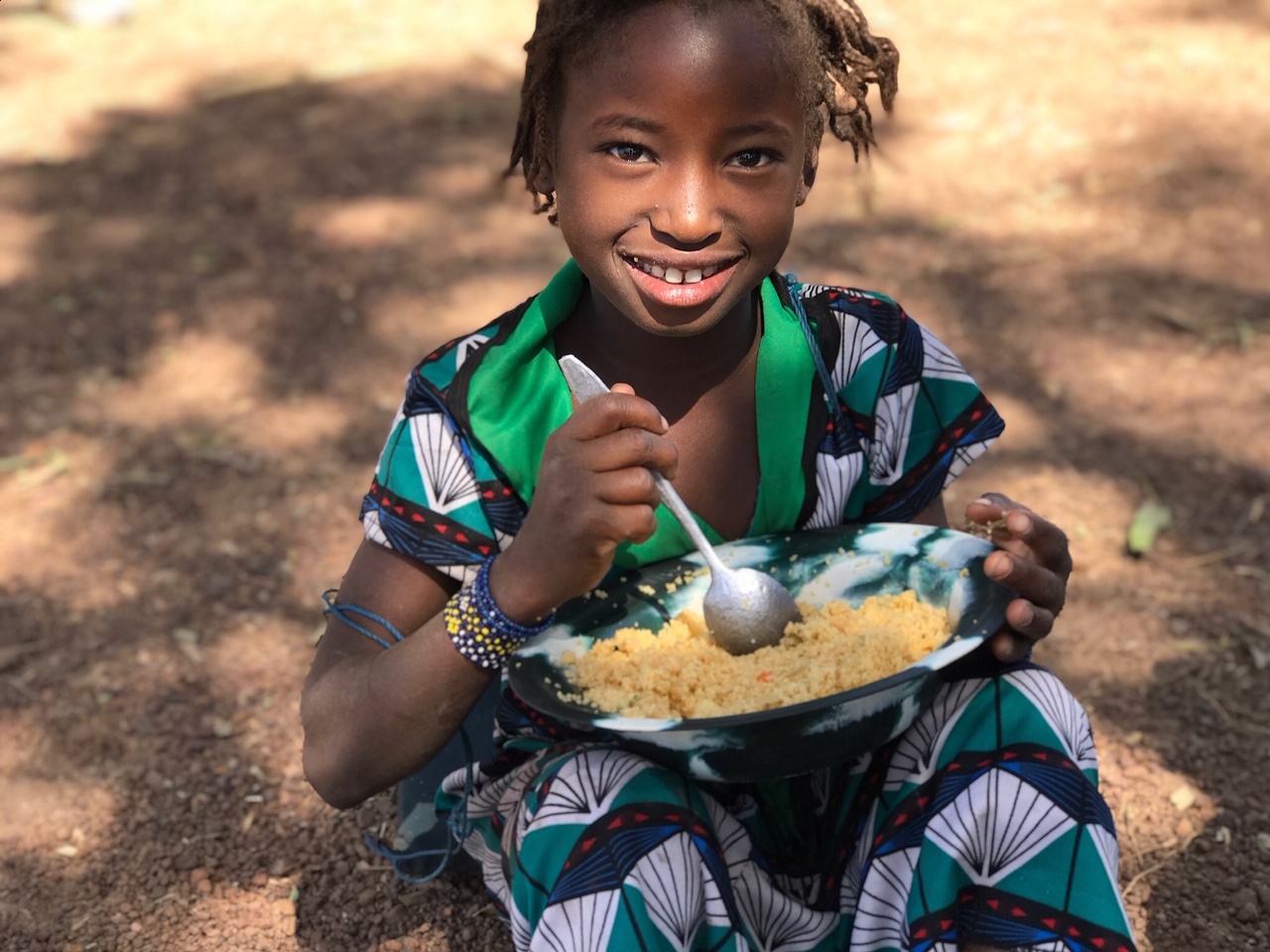Lunch Program
-

The Intersection of Health and Education
One of the most significant and impactful programs run by One Global Village is the school lunch program at Siraba School in Mali, West Africa. Launched in April 2015 with a generous seed gift from Drs. Mary and Dave Zamierowski, the program provides a daily, nutritious, protein-rich lunch and provides employment for women in the village who prepare and cook daily meals for over 200 students.
A daily, nutritious, protein-rich lunch for over 200 students and employment for village women who prepare and cook the lunch
Dagabo is a very poor village. During the few months of the rainy season, when farm crops of maize are plentiful, families can afford a wider range of food, but for most of the year, the staple diet is millet, or sometimes rice, flavored with onions and sometimes with a tomato. Inadequate childhood nutrition has a significant impact on students. Hunger makes concentration difficult, physical and brain development slower, absenteeism higher.
Being able to provide a nutritious lunch every day has increased attendance rates at Siraba School above 95% and helped transform students’ focus and capabilities in the classroom. Koro and the Dagabo Women’s Group manage purchasing at the market in Ouéléssébougou, and the Women’s Group share responsibility for cooking. The School Committee built a storage building for bulk items and a covered area referred to as the “canteen” for the students to eat under, out of the sun.
Cooking is done under the shade of a large Shea tree near the school (a location selected by the Women’s Group). Our Mali Director purchased enormous cooking pots, bowls, huge spoons, cooking utensils, plus bowls and utensils for each child. Large logs are arranged in a star shape with the pot directly on top, and as the logs burn they are pushed in towards the center.
Every aspect of this program is making a big difference in Dagabo – for the mothers who have an opportunity to earn some funds for their families, for the teachers who see improvements in their classrooms, and most of all for the students. Learning is much easier with a full belly!
